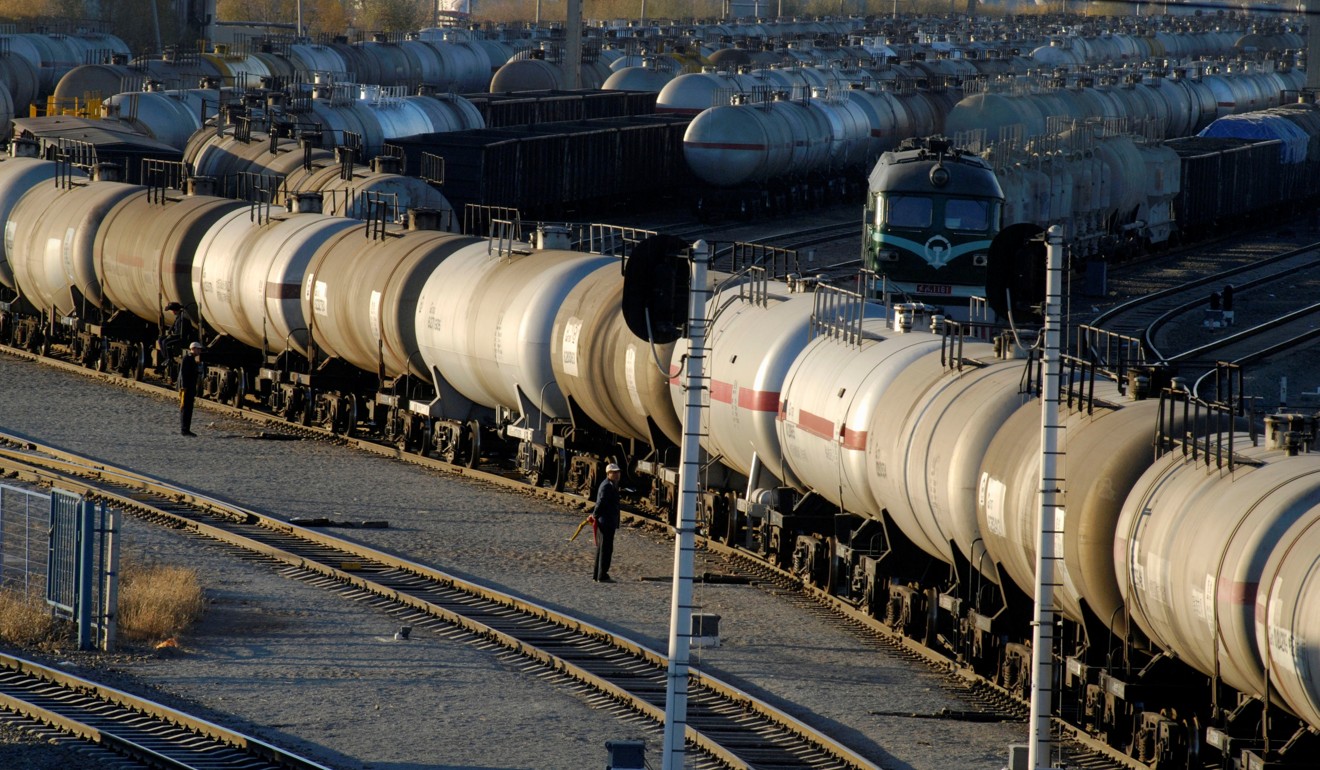
China cuts quotas for crude oil imports in first round of allowances for 2019
- They total 89.84 million tonnes, down from 121.32 million tonnes a year ago – a move that may signal slowing demand growth in the first half
China issued its first batch of crude oil import quotas for 2019 on Wednesday at a lower volume than for the same batch a year ago, though expectations are for the volumes to climb later this year.
The Ministry of Commerce granted quotas totalling 89.84 million tonnes to 58 companies in its first allowances for 2019, according to four sources with direct knowledge of the matter and documents reviewed by Reuters on Wednesday.
This is down from the 121.32 million tonnes issued in the first batch of allowances for 2018, although the sources said Beijing may increase the overall volume for 2019 in a second batch of quotas later this year.
It comes as Beijing seeks to end a bruising trade war with Washington and reduce the risk of a sharper economic slowdown in 2019.
The trade frictions are already disrupting global supply chains, fuelling concerns of a bigger blow next year to world trade, investment and financial markets.
Official data released this week showed China’s factory activity contracted in December for the first time in over two years, signalling a continued loss of momentum in the Chinese economy.
Bad first day at the office for China economy
It was the first contraction since July 2016 and the weakest reading since February 2016. Analysts had forecast it would dip to 49.9 from 50.0 the previous month.
Lower import quotas may signal slowing crude demand growth for the first half of the year in China, the world’s largest oil importer and second-largest oil consumer.
“The market, in general, does not have an upbeat outlook for imports. I think the drop in quota could likely mean easing growth in China’s crude imports in the first half,” said Zhou Guoxia, a crude oil analyst with consultancy JLC.

Private refiners, also known as teapots, received quotas for 70.65 million tonnes of imports, more than 20 per cent lower than the first batch of quotas issued last year, according to the documents and Reuters data.
This volume should be able to cover 10 months of their requirements, Zhou said.
China’s private economy set for winter ‘colder and longer than expected’, warns billionaire tycoon
One of the four sources, who works for a private Chinese refiner, said they received about a third of its annual quota in the first batch and expects to get the remainder in a second batch, which Beijing usually issues around September.
But the start-up of new refineries in China in 2019 is expected to raise crude imports to a record, adding 630,000 barrels per day of new demand, 7 per cent higher than last year, according to Beijing-based consultancy SIA Energy.
Dalian Hengli Petrochemical and Zhejiang Petrochemical, which are starting up new refineries in 2019, have each received quotas of 4 million tonnes, according to the documents reviewed by Reuters.
Dragon Aromatics, a petrochemical producer based in Fujian province, has also received import quota of 600,000 tonnes as it resumes operations at its condensate splitter, the sources said.

